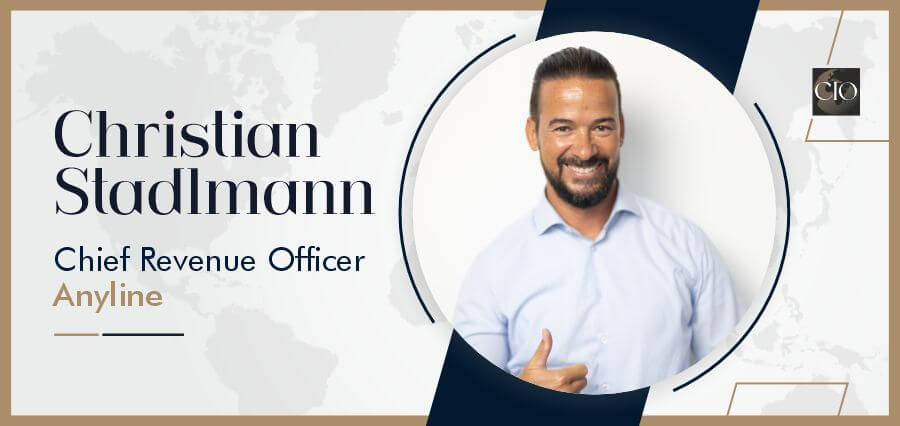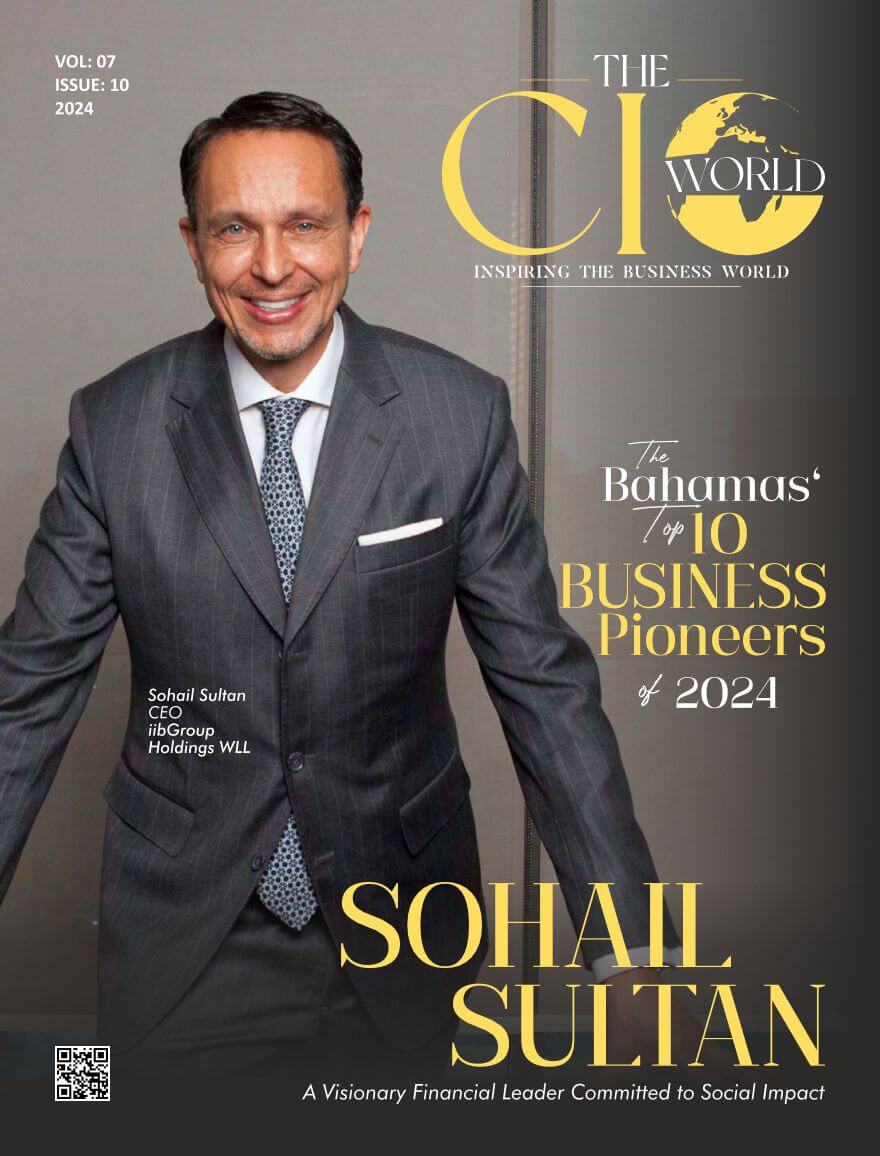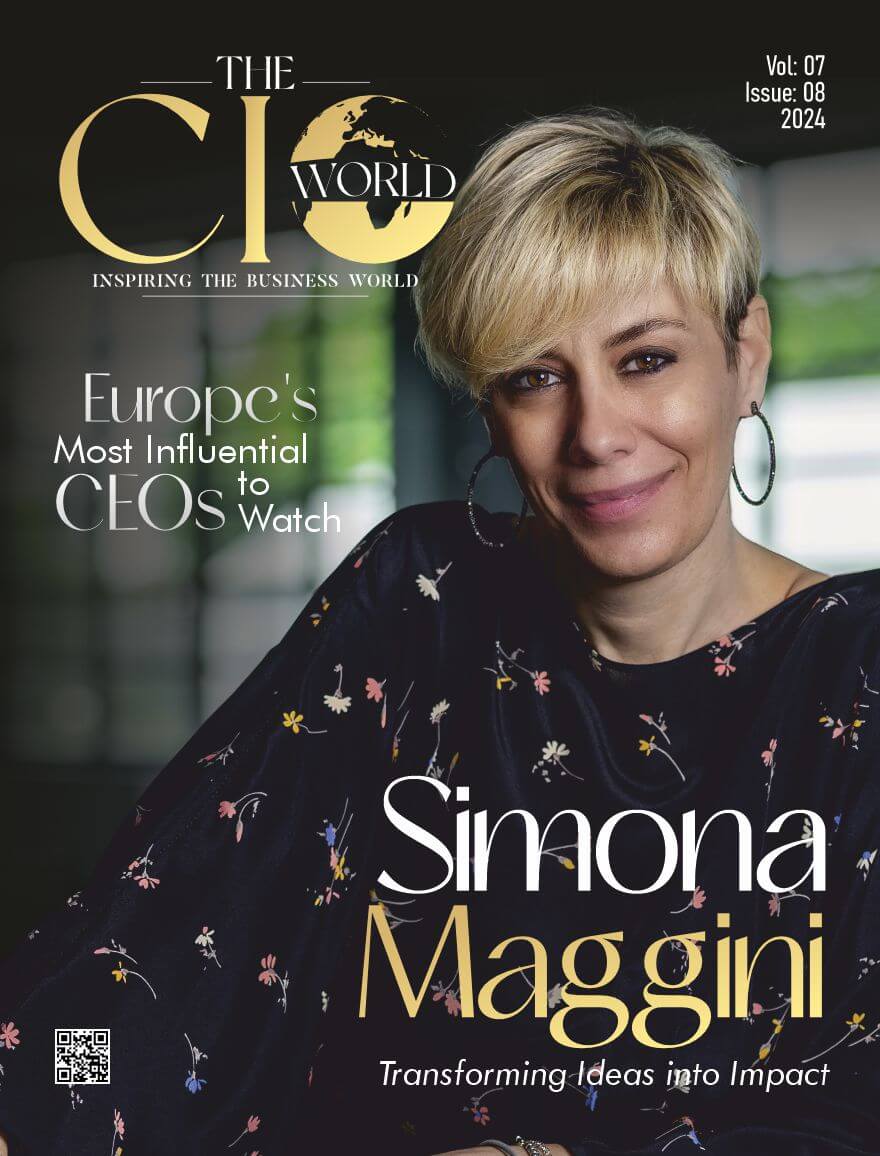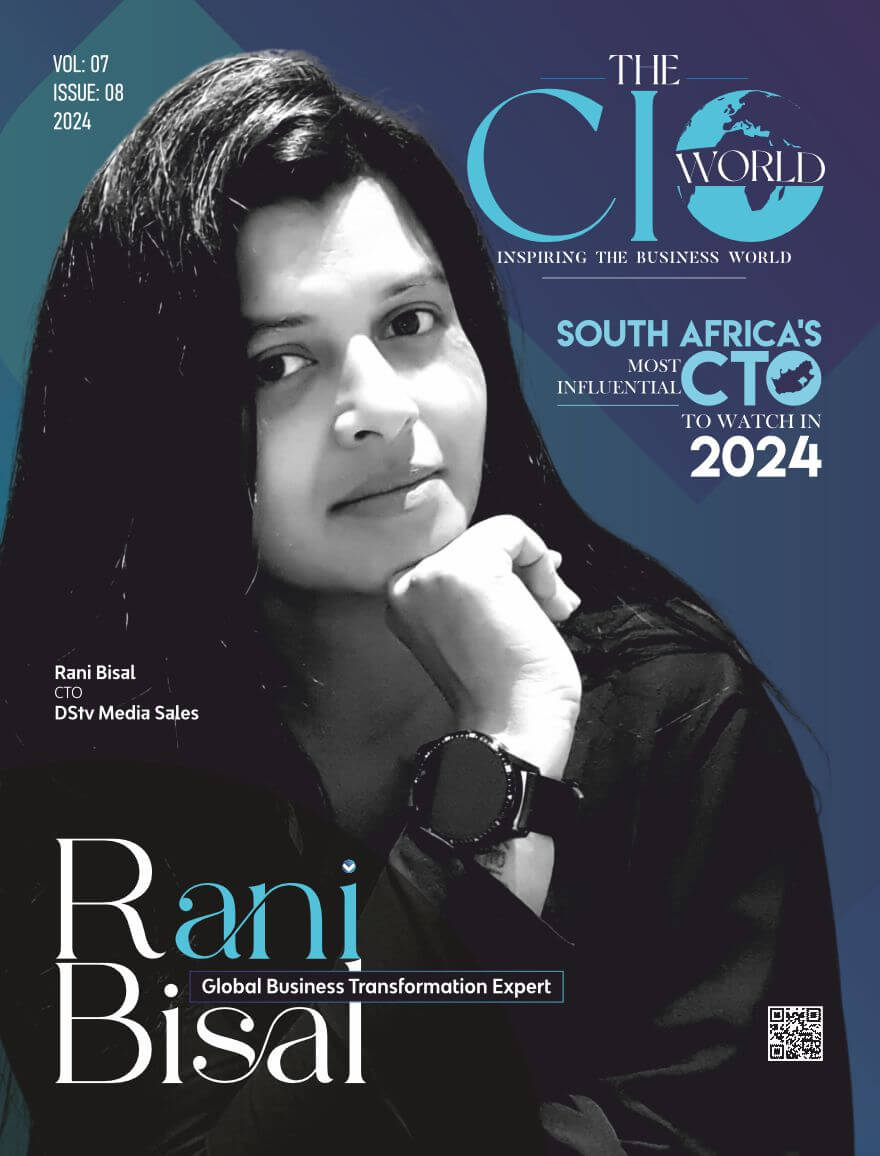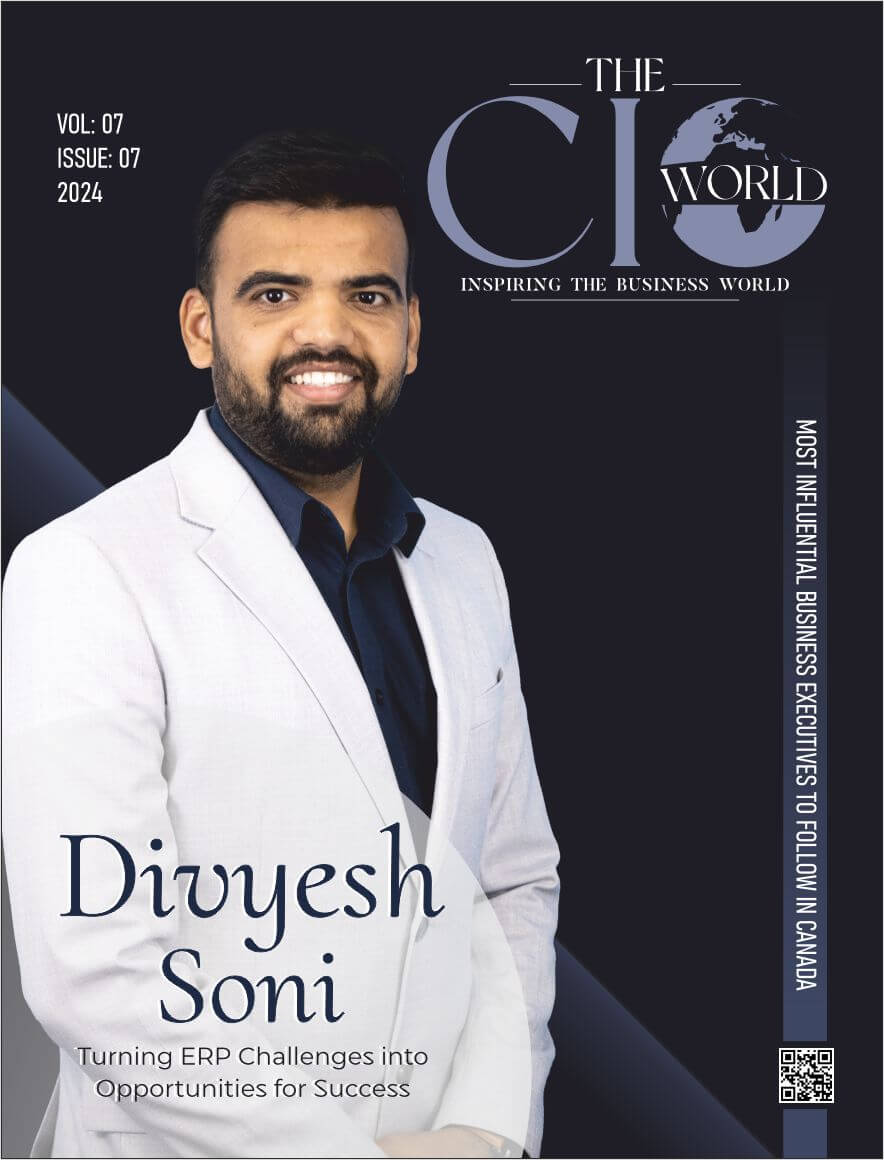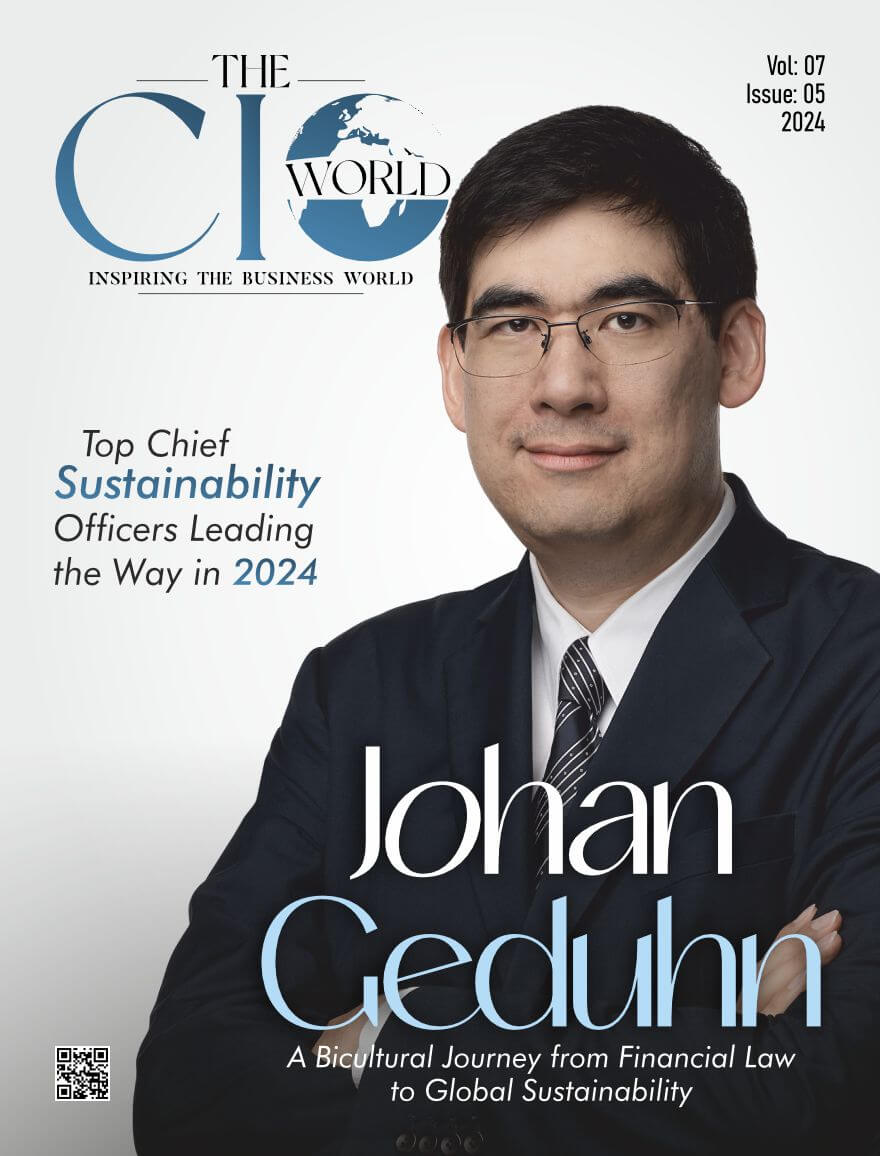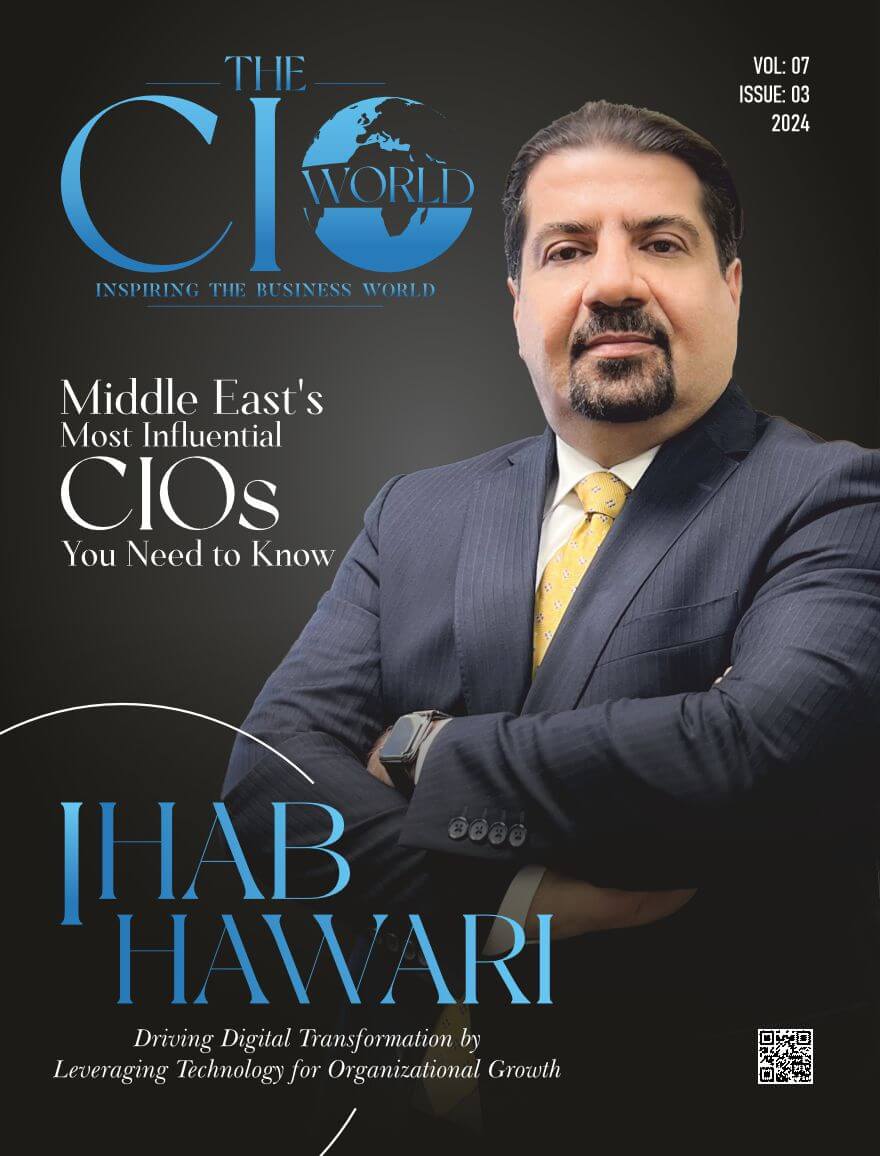Understanding the nuances of technology empowers users to make informed decisions about its adoption and usage. When they get familiar with the benefits and potential obstacles of technology, these individuals tend to make choices that align with their needs and preferences.
With his effective communication, Christian Stadlmann the Chief Revenue Officer at Anyline has been translating technology solutions to people from non-technical backgrounds. He is a chief revenue officer and seasoned general manager with over 20 years of successful experience in the enterprise software sector.
During our discussion with him, he highlighted his approach to maximizing revenue growth.
Tell us about yourself and what attracted you to a career in software sales.
I’m a technical guy and I loved programming, but I learned that I’m not a great programmer. My strength is communicating about technology and making it easy for someone to understand how a particular technology works and its benefits. This made me particularly well-suited for a career in software sales. When I began my career 23 years ago, software was very cutting-edge.
Throughout my career, my typical customers have not been analytics experts – in fact, many of the CIOs and CTOs I’ve sold software to have had no technical background. It has become my job to help explain the value of software solutions and make it understandable for them. I realized very fast that I had this strength – translating technology to non-technical business leaders – and I’ve built my career around this skill set.
You serve as Chief Revenue Officer for Anyline. What is Anyline and what drew you to join the company?
Anyline is a startup software company founded just over a decade ago. We’re the market leader in mobile data capture – our software gives every smartphone or device with a camera the power to read, interpret, and process visual information.
I joined the Anyline team two-and-a-half years ago when it was about $2 million in revenue. I was attracted to Anyline for several reasons – first and foremost, our technology is revolutionary and has the power to change the way customers in a number of large, established industries – like automotive – conduct business.
I believe in the technology we offer and wake every day with the opportunity to help the organization, prioritize, scale, and increase recurring revenue. It truly has been a dream opportunity for me.
What motivates you in your role as Anyline’s Chief Revenue Officer?
In my role, I am a privileged member of the Anyline senior leadership team, which means I have the opportunity to set organizational goals and help articulate strategic plans to influence results – for our team and for our customers.
I’m somebody who looks at our CRM solution in the morning and I’m super proud that everything is working diagnostically because I know what that means for our customers and our company. I’m very motivated by putting our plans in motion and seeing things happen according to how we’ve planned.
How do you approach building and leading high-performing sales and marketing teams?
I’m a big believer that sales and marketing must work hand-in-hand in any organization. Sales require a very different skillset from marketing – and vice versa – so, it’s my belief that you must build a sales and marketing structure that empowers people to use their unique talents and work together to bring out the best in one another.
For example, if you have someone who is not that deep in the technical aspects of a software product but they’re a good seller, it’s a leader’s job to help them work with the technical team who can support and teach them. Just like if you have a technical person who tends to jump quickly into deep discussions around technologies, you must help that person know how to address C-level leaders and speak about the broader aspects of the business and industry.
I use this same approach with sales and marketing teams. I assess the talent I have in each group and then help everyone use their talents to deploy and scale the model we’re building.
Can you highlight a specific challenge you’ve faced in maximizing revenue growth? How did you successfully navigate it?
One significant challenge in driving revenue growth is navigating customer engagements to uncover deeper value. In a recent project, rather than offering an immediate quote based on the customer’s initial request, we opted for a consultative approach.
We spent weeks understanding their broader business needs and objectives. This deeper dive allowed us to propose a solution that was significantly more comprehensive and valuable, priced five times higher than what might have been suggested initially.
The key to our success wasn’t just in offering a product but in demonstrating the tangible value and strategic advantage our solution could bring to the customer’s operations. By articulating this value effectively, the customer was not only willing but eager to invest at the higher price point.
This approach turned a straightforward sales transaction into a strategic partnership, leading to a more satisfied customer and a substantial increase in revenue. It highlights the power of value-based selling: focusing on the customer’s success as the pathway to our own.
What strategies do you employ to foster collaboration between sales, marketing, and other revenue-related departments?
I’m a big believer that it’s best practice for sales and marketing to report to one C-level leader in a company. In previous roles at other organizations where I only had direct accountability for sales, we lost a lot of time having discussions with the marketing team, debating why marketing was not producing enough leads, and asking if they were using the same lead qualification processes as sales.
At Anyline, our sales and marketing team members report directly to me, and it has created a lot of efficiency and clarity that allows us to move faster. We have common goals and operate as one united team. It’s about goal setting, aligning goals and transparent tracking against those goals, and operating as one sales and marketing team reporting to the same leader really helps with that.
How do you stay informed about industry trends and technological advancements that could impact revenue generation?
This is the software industry, which is the fastest industry on the planet when it comes to changes. It’s critically important to stay informed – you need to read a lot and stay abreast of the broader landscape so that you have a strong, ongoing understanding of the latest technology advancements.
For example, I didn’t know anything about machine learning when I joined Anyline. I’m certainly not a machine learning expert today, but I am informed about how it works and the latest developments. I can talk with a customer about what’s behind our Anyline solution related to artificial intelligence and machine learning. As you progress in your career, it’s critically important to continue learning.
In your experience, what role does customer feedback play in shaping revenue strategies? How do you incorporate it into decision-making?
Many companies and leaders are guilty of obsessing over internal dynamics and details as opposed to customer and market needs. Customer feedback is pivotal in shaping revenue strategies as it offers direct insights into what customers value and need.
It guides my decision-making by ensuring that every strategic move aligns with enhancing the customer experience. This involves actively integrating customer feedback into product development, service improvements, and overall business strategies.
By prioritizing customer input, we ensure our offerings not only meet but exceed expectations, driving customer satisfaction and loyalty, which in turn, fuels revenue growth. This customer-centric approach transforms feedback into actionable insights, making it a cornerstone of sustainable business success.
To further this strategy, investing in a robust Customer Service (CS) team is key to nurturing recurring revenue models. This team, distinct yet goals-aligned with sales and marketing, focuses on the technical, user, and business success of our customers.
Effective customer service is about more than just resolving issues; it’s about building relationships that encourage growth and renewal. By concentrating on customer success through service, we create a partnership where success is mutual, laying a strong foundation for a scalable and enduring revenue structure.
Can you share a memorable success story where your revenue-focused initiatives significantly contributed to the organization’s overall success?
When I joined Anyline, we had $2 million in recurring revenue. Since I’ve been here, we’ve more than quadrupled this in just two years, which made us a multimillion-dollar company. This success is directly attributed to our strong planning process and our commitment to understanding our customers’ businesses and delivering mobile data capture solutions that help them improve safety and efficiency and reduce the cost and complexity of analog processes.
My tenure at a former company further underscores my capacity for driving exponential growth, where I was instrumental in catapulting revenues from $30 million to over $500 million in seven years. This was accomplished by listening to the market, architecting an organization capable of scaling effectively, and transitioning a zero-margin business into a highly profitable venture with 70% margins.
My approach focused on shared services, prioritizing customer success and retention, which exceeded 90%, and simultaneously expanding our customer base fourfold. My involvement in over ten software acquisitions, with the largest exceeding $450 million, showcases my strategic acumen in fostering organic growth and scaling businesses to new heights.
These experiences highlight my comprehensive expertise in driving significant revenue growth and implementing high-margin models, contributing profoundly to organizational success.
How do you balance the short-term goals of meeting revenue targets with the long-term strategy for sustainable growth?
Balancing short- and long-term goals really comes down to having a strong plan and a strategic playbook for the team to operate against. It’s critically important for every team member to have visibility into where the company is headed, and all day-to-day activities should align with that strategic plan.
To ensure our day-to-day activities remain grounded in our strategic plan, I do quarterly reviews with my team to assess what we’ve done, and what we’re doing, and make sure the activities the team is engaged in are still aligned with our overarching plan. It’s important to set the plan, regularly review it, and then adapt if needed.
What advice would you give to aspiring Chief Revenue Officers looking to excel in their roles and contribute to organizational success?
To excel as a Chief Revenue Officer, focus on building a strong team. Success hinges on aligning talent with roles that match their strengths, fostering an environment where each member can thrive. Avoid forcing fits; instead, leverage individual strengths to drive organizational success. CROs should Invest in building a team where every member is positioned to thrive, and they’ll have the foundation to navigate any challenge and seize every opportunity.
What are some of your proudest professional achievements? Have you received any honors or awards?
When I started my sales career as a software engineer, I started working immediately on projects with customers. Soon after, our company’s sales manager asked me to join his sales team and in the first year, I was recognized as “Rookie of the Year” generating more revenue than our most experienced senior account manager at that time. I still count that as one of my proudest achievements.
I also have a reminder at home…a glass statue from a customer I received after we finalized a million-dollar deal. It was the biggest deal I had ever had. What made it even more special was that the customer personally gave me the award and thanked me for our work together. Closing a big deal feels great, but the greater satisfaction comes from knowing your work is making a real difference to the customer and their business.

